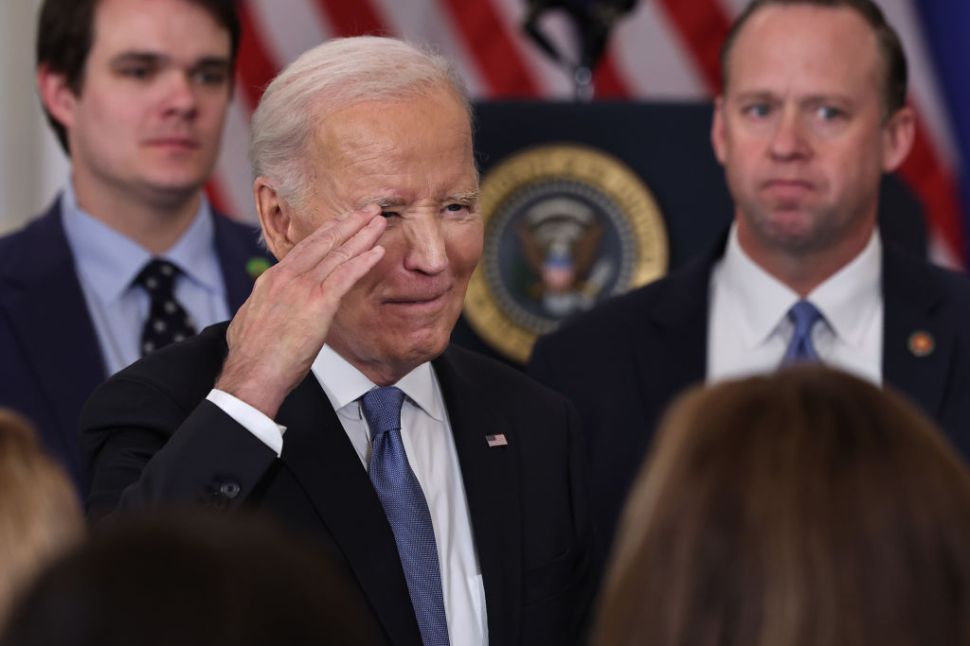Joe Biden in a black suit.” width=”970″ height=”647″ data-caption=’Biden’s latest executive order focuses on bolstering the U.S.’s advantage in A.I. infrastructure. <span class=”media-credit”>Getty Images</span>’>
With less than a week left in office, President Joe Biden yesterday (Jan. 14) signed an executive order to streamline A.I. infrastructure across the U.S. Aimed at bolstering the country’s competitive advantage over the technology, the order earmarks federal sites for A.I. data centers built by private companies.
“Cutting-edge A.I. will have profound implications for national security and enormous potential to improve Americans’ lives if harnessed responsibly, from helping cure disease to keeping communities safe by mitigating the effects of climate change,” said Biden in a statement. “However, we cannot take our lead for granted.”
The order directs the Department of Defense and Department of Energy to identify at least three sites where the private sector can build A.I. data centers. Developers tapped for the land will have to pay for the construction and operation of these facilities.
In a nod to the massive amounts of energy needed to power A.I. infrastructure, private companies developing on federal land will also be required to bring enough clean energy resources to match these data centers’ electricity needs. The A.I. revolution has spurred a dramatic rise in the energy consumption of such facilities, which accounted for 4 percent of the nation’s total electricity use last year—a figure that could more than double to 9.1 percent by the end of the decade, according to data from the Electric Power Research Institute.
Speeding up A.I. data center development is also a key component of Biden’s new order, which urged agencies to prioritize “expeditious” permitting of A.I. infrastructure on federal land. Opportunities to hasten this process could include establishing “categorical exclusions” under the National Environmental Policy Act for infrastructure that doesn’t have significant environmental impacts, according to White House officials.
The executive order came a day after the Biden Administration announced a new framework for the exporting of chips used to power A.I. products. In addition to placing further restrictions on exports to countries like China and Russia, the new rule calls for a 50,000-chip cap per country for most of the world.
The rule, which cannot be enforced for 120 days, was met with pushback from impacted countries and major industry players alike. “We believe it is also in the U.S. economic and security interest that the E.U. buys advanced A.I. chips from the U.S. without limitations,” said the European Commission’s tech and security head Henna Virkkunen and trade chief Maroš Šefčovič in a joint statement. U.S. chipmaker Nvidia (NVDA), meanwhile, called the framework “misguided,” describing it as one that “threatens to derail innovation and economic growth worldwide” in a blog post.
“We’re trying to strike the right balance between ensuring the frontier of A.I. stays in the [U.S.] and our close allies while also ensuring that the rest of the world can benefit from A.I. and get the hardware that they need to power A.I. applications going forward,” said Jake Sullivan, the White House national security advisor, while defending the A.I. chip framework in a press briefing earlier this week. “We think this is, in a bipartisan spirit, the way to best preserve and protect America’s lead when it comes to artificial intelligence.”

